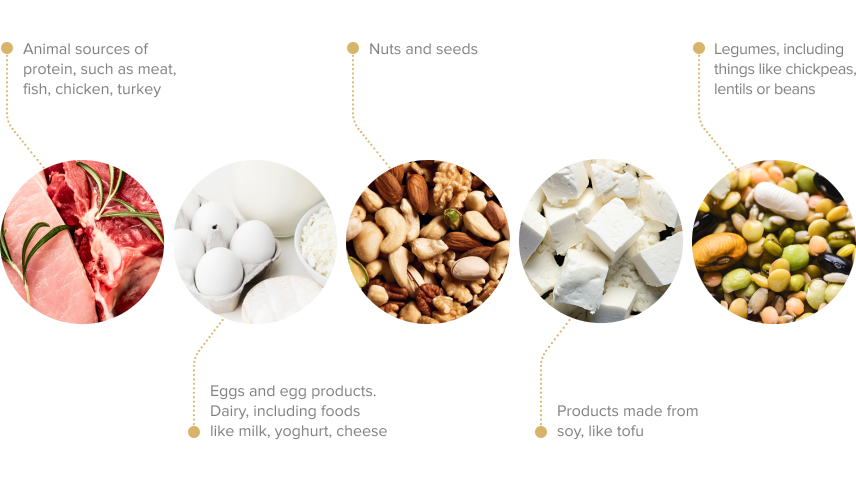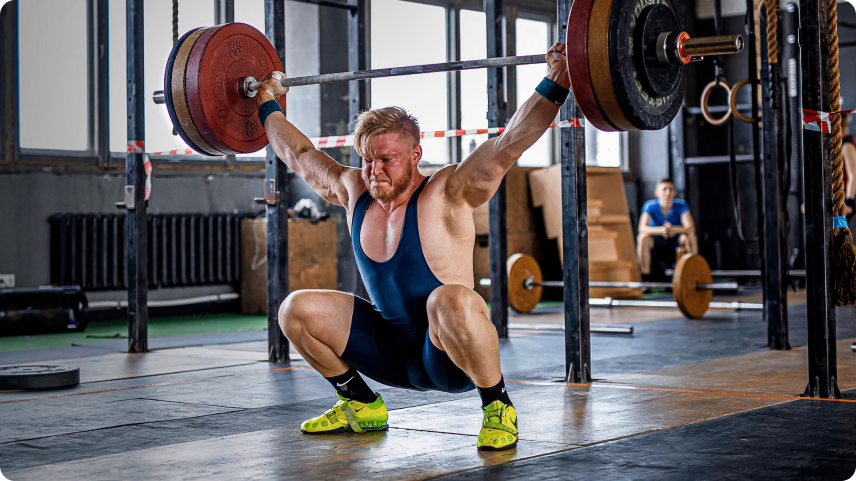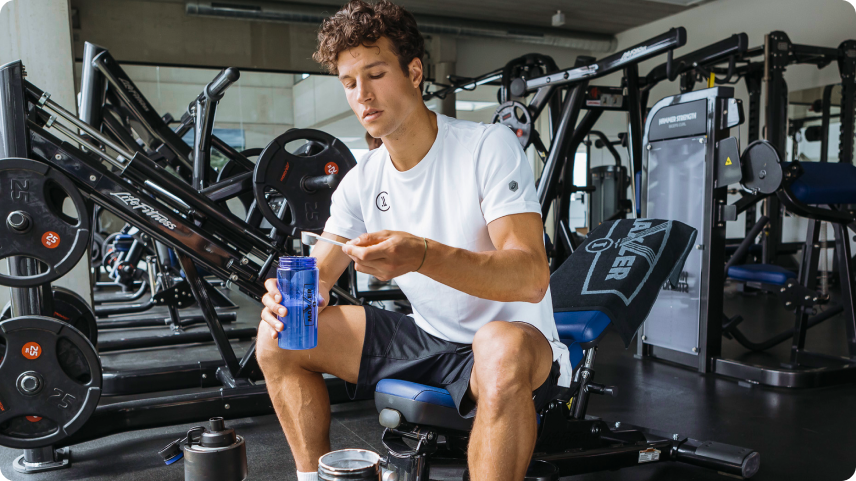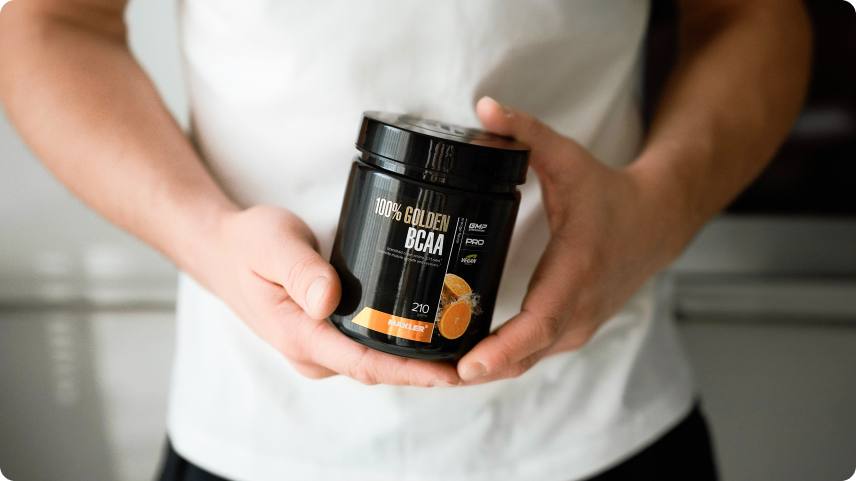Best BCAA Supplements to choose in 2025: Types, Benefits, Dosing

BCAAs are probably one of the most controversial supplements in sport. If you google BCAAs, you’ll likely find hundreds of pages of people recommending them or recommending staying away from them. Suppose you're curious about BCAAs and how they may enhance your performance. In that case, we’ve assembled all we know about BCAAs to help you make decisions around the supplement.
What Are BCAAs?
Protein is one of the critical building blocks of our body. It makes up our tissues and cells and carries out a lot of different functions in the body. Protein is made up of amino acids. You may see them referred to as AAs for short. There are 22 amino acids that most proteins in our body are made from. These amino acids can be divided into smaller groups based on whether we can make them.
The amino acids that we can make in our body are called non-essential amino acids. Those we cannot make in the body are called essential amino acids. There are nine essential amino acids. Three of them, leucine, valine, and isoleucine, are the branched-chain amino acids, or BCAAs.
They are called BCAAs for a simple reason. If we look at their structure, their functional group makes a little split tail, like the branches of a tree. Therefore, we call them branched, as they're the only amino acids to have such a structure.
The branched amino acids are essential, so we must get them from foods. Luckily, there are a few foods that contain them, which include:
- Animal sources of protein, such as meat, fish, chicken, turkey
- Eggs and egg products
- Dairy, including foods like milk, yoghurt, cheese
- Nuts and seeds
- Products made from soy, like tofu
- Legumes, including things like chickpeas, lentils or beans

Therefore, many sources of BCAAs help our body meet its requirements for amino acids. However, when taken as a supplement, BCAAs have also been suggested to improve exercise performance. We're still learning about how BCAAs can support performance and their potential benefits. So, do BCAA supplements work, and what benefits do they have?
Benefits of BCAAs
Branched-chain amino acid supplements are often used to enhance performance. They have various benefits related to performance, muscle growth, and recovery.
For example, it appears that BCAAs can help attenuate tiredness. When we train for an extended period of time, our levels of another amino acid, tryptophan, increase. This results in its transport to the brain, which converts it to serotonin. Serotonin impacts our tiredness levels. BCAAs can compete with tryptophan, so a higher intake of BCAAs during exercise can lower the amount of tryptophan converted into serotonin. This may help us perceive less tiredness. Therefore, many may use BCAA supplements for women and men to exercise for longer.
You may have also heard of using BCAA supplements for weight loss. BCAAs may help with weight loss when paired with a diet that decreases caloric intake. This effect is likely achieved through better fat burning.
The two main benefits that BCAAs are known for are muscle building and recovery.

Muscle Building
BCAAs are connected to muscle building through one amino acid, leucine. Leucine is known to activate one of the cell pathways that leads to muscle growth. BCAAs can help protect muscles from being broken down. However, we need all the essential amino acids, not just the BCAAs, to boost protein synthesis and muscle growth. Therefore, BCAAs may not be the best way to stimulate muscle-building processes. However, they may promote muscle growth, but in a lesser manner than a complete protein source can.
For more tips on muscle building, check out some valuable posts:
- Our top 10 supplements for muscle growth
- 10 Muscle-building tips
- Top reasons why your muscles aren’t growing
- How can you maximize your results?
- How to use protein for muscle gain
- How to use gainers for muscle growth

Muscle Recovery
BCAAs can help improve markers of muscle damage. This has been observed for those doing resistance exercise. Therefore, people doing resistance training or those engaging in sports that have a component of resistance training can benefit from BCAAs.
But what about endurance exercise? Can BCAA supplementation support recovery in endurance athletes? It appears that BCAAs may lower the muscle damage associated with exercise. Therefore, you may benefit from BCAA supplements if you're an endurance athlete during intense training or competition.
Remember that proper recovery is essential for success, as your muscles need time to repair themselves. Therefore, if your aim is to improve muscle recovery, you can add BCAA supplements to your routine. Supplements are not the only thing you need for proper recovery, though. Ensure that you're setting yourself up for success by including rest days, active recovery sessions, massage sessions, and proper nutrition.
To help you find a recovery method that works for you, check out our posts with tips on recovering better:
- Soothing muscle soreness and DOMS
- How to speed up post-workout recovery
- Top 3 recovery techniques you should add to your routine
- Causes of muscle pain after a workout
The bottom line is that BCAAs may be a helpful supplement in some instances. However, from a scientific point of view, many variables make it hard to say whether BCAA supplementation has a benefit or an effect in a study. That's why a lot of evidence on BCAA usage is inconclusive. If you find that BCAAs support your performance, that's great, and you can continue using them.
How to Choose a BCAA Supplement
BCAA supplements can be an excellent choice for those who need to support muscle growth or recovery. However, there are many BCAAs on the market, and it may be challenging to pick the best one for you. So, we've assembled some criteria to help you make the choice.
- Check supplement quality. Supplements aren't controlled by the FDA, so it's essential to be diligent when choosing one. After all, you don't want to end up paying for some filler, which doesn't give you the desired results. Therefore, make sure you choose supplements from brands that are honest about their quality and ingredients. If you can get a third-party tested product, it's even better.
- Check the ingredients list. If you’re looking for a BCAA supplement, you need a little more than BCAAs and some flavours. However, some people may want to choose supplements with BCAAs that also help them reach other goals. For example, BCAAs often make up pre-workout supplements. Decide whether a supplement with BCAAs or just the amino acids on your own will suit you better.
- Look at the serving size. Serving sizes need to be sufficient to meet your goals. Therefore, check them out when looking for a supplement. Make sure that your supplement provides you with enough active ingredients per serving.
- Try a new taste or form. Any supplement is only as good as how regularly you take it. Therefore, considering how your supplement will fit into your routine before you buy it is worthwhile. The best BCAAs for a CrossFit fan can look different from the best BCAAs for a soccer player. If you head straight to the gym after work, you might find portable forms of supplements like pills or sachets more convenient than a can of powered BCAA. Alternatively, for those who hit the gym first thing in the morning, a large can of BCAAs at home may be just the thing. In addition, make sure you find a taste you like – taking a supplement can be an enjoyable experience. And it'll likely help you stick to taking the supplement regularly.
- Experiment. It may take trying multiple BCAA supplements before you find one you like. Therefore, don't be afraid to experiment with them. Pick new flavors or try different brands. Also, consider shaking up how you take the supplement—maybe add it to flavored water to make lemonade or to your pre-workout smoothie. The world is your oyster.
When Is the Best Time to Take a BCAA Supplement?
The timing of taking any amino acid supplement is important. Some supplements need to be taken up to an hour before the workout, while others are better off after it. In this sense, BCAAs are pretty flexible. You can take a BCAA supplement almost at any point around your workout. BCAAs take about 30 minutes to peak in your bloodstream, so account for that if you need to. For fighting soreness and promoting recovery, taking BCAAs before training appears to be better. This is especially true if you're doing eccentric exercise and for those doing resistance exercise. Therefore, taking BCAA supplements for bodybuilding and other related sports and disciplines can be helpful for improving recovery. BCAAs during a workout may help fight tiredness, which may lead to improved performance over time; however, more studies are needed to confirm this effect.
Potential Side Effects of BCAAs
Typically, taking BCAAs in the dosages recommended by supplement manufacturers is safe. They appear to be safe when up to 12 grams are taken daily for up to two years. Some people may experience uncomfortable side effects like nausea or headaches. Therefore, monitoring how your body responds to the supplement is essential. Sometimes, it's even worth trying a smaller supplement dosage to see how your body reacts to it. However, it appears that BCAAs may not be appropriate supplements for people with diabetes, certain psychiatric conditions, and liver issues. As research into these supplements' safety is ongoing, it's always best to consult with a medical professional before taking them. They will be able to advise you on whether an amino acid supplement like BCAA will suit you.Amounts and Dosage
What are the proper dosages of BCAA supplements? Do the dosages of the supplement change according to the sport you play or your goals? It's a bit hard to say what the optimal dose of BCAAs is. Studies use a variety of different protocols, giving their participants different amounts of BCAAs. In addition, how well the BCAA supplement works may depend on how much protein you consume daily. The recommendation for attenuating muscle damage and promoting recovery is taking over 200 mg of BCAAs per kg of body weight for at least ten days. For someone weighing around 75 kg, this means taking about 15 grams of BCAAs daily. This may seem like a lot, and you definitely shouldn’t aim to get it down in one go. If you require high dosages of BCAA supplements, it's best to break them down into smaller doses. You can take a part of the BCAAs dose at meal times when it's convenient and a part before and after training, for example. For other purposes, you can follow the dosage recommendation on your supplement's packaging. If you aim to boost your muscle growth by taking a BCAA supplement, ensure you're looking after your protein intake and getting enough BCAAs.
Our top BCAAs
If you’re on the hunt for the best BCAA supplements for recovery or musclebuilding, we’ve got your back. Maxler’s BCAA supplements have been specially developed to help athletes reach specific goals. Our supplements meet the highest quality standards and are produced in IFS and GMP-certified factories. Our BCAA supplements are vegan and, therefore, suitable for most athletes. We strive to give you the best quality, taste and formulations for your new wins and personal bests.
100% Golden BCAA
Our 100% Golden BCAA supplement is a true classic. With a 2:1:1 ratio of leucine, isoleucine and valine, and a range of exciting flavors, it's sure to keep you going during strenuous workouts. It comes in a powder form, making it easy to personalize your dosage. In addition, for those constantly on the go, we've also made our 100% Golden BCCA in a convenient sachet form. That way, you can top-up your BCAAs anywhere and at any time.
Vegan BCAA 8400
For those wanting a convenient BCAA form, we've also got our vegan BCAA 8400, which comes in an easy-to-swallow tab. Each serving provides over 8 grams of BCAA alongside plenty of calcium to support muscle contractions.
Maxler BCAA + Glutamine
If you’re looking for the best BCAA supplement for muscle recovery, our newest addition will also be up your alley. Maxler BCAA + Glutamine is a powerful combination of four amino acids essential for proper recovery. Recovering after a workout has never been so convenient.
Important Considerations
BCAAs remain a controversial supplement for some purposes. However, they may help you work out for longer, lose weight and support recovery. When trying to get the most out of BCAA supplements, choose high-quality products that fit into your routine. Remember that supplements can boost you, but proper training and nutritional routine can take you where you want to be.